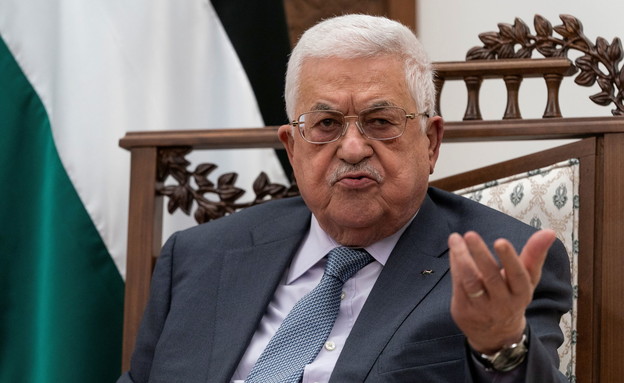Russia, US Disagree on Just about Everything. However, There Is 1 Problem They Are Willing To Cooperate On
(Norway) on 13 July 2021
by Gina Grieg Riisnæs (link to original)
"There couldn't be more at stake," John Kerry said when his plane landed this weekend.* These days, the diplomat travels from country to country on United States business. He has one topic on his agenda: climate change. Monday was no exception.
When Kerry arrived in Moscow, he met with Russian Minister of Foreign Affairs Sergey Lavrov. The meeting took place during a time when the relationship between the two world powers is more tense than it has been for a long time.
A Difficult Backdrop
Cyber warfare. Regional conflicts. Ambassador chaos.
These are keywords in the icy relationship between the United States and Russia. The tension was crystal clear in June, when Presidents Joe Biden and Vladimir Putin met. It was the first time in three years that the countries' top leaders shook hands.
In 2018, it was former President Donald Trump and Putin who stood face-to-face. The meeting was labeled a "terrible spectacle" by Trump's former adviser, Fiona Hill.
The meeting in June went much better, but the expectations had also been heavily toned down, according to political analyst Dmitri Trenin. The goal was primarily that the two world leaders would talk together and express their expectations for each other — and they did that.
Optimistic, but tense. That's how the meeting was evaluated in retrospect.
At the same time, the presidents pointed out climate as a challenge that it might be possible for them to work together on in the future. In Monday's meeting, Kerry and Lavrov took those intentions a cautious step further.
More Important than Atomic Weapons
The two leaders started out by each expressing what they thought about the world's climate crisis. Then they underscored how important they believe it is to do something about it. The two politicians have been central in world politics for a long time. Lavrov has been minister of foreign affairs for 17 years, since 2004. Kerry's political career reaches back to the 1970s. Through the years, the Vietnam veteran has operated under several different titles. From 2013-2017, he was the secretary of state under President Barack Obama.
Through the years, Lavrov and Kerry met a number of times. They have had a wide range of world problems on the agenda. They have negotiated about chemical weapons and atomic weapons. Monday's meeting about climate was just as critical and acute as those topics, according to Kerry. He and Lavrov agreed that they will cooperate in the future to solve climate challenges.
No Clear Solution
Russia and the U.S. are both responsible for a large percentage of the world's greenhouse gas emissions. The U.S. comes in second place, after China, among the countries with the most greenhouse gas emissions in the world. Russia comes in fourth. So how will they bring them down? Neither Lavrov nor Kerry had the answer in Monday's meeting.
However, the fact that Russia wants to talk about climate at all is a huge step forward — at least, Espen Moe believes so. He's a professor in international politics and energy at the Norwegian University of Science and Technology. Still, he says he will take Lavrov's word on cooperation and emissions cuts with a grain of salt.
"I'll believe it when I see it. Russia has long been a straggler when it comes to reaching climate goals. So we will see what actually happens and what they eventually come to an agreement on."
There are still some potential bright spots, though.
Climate as a Springboard
That the two countries have agreed to work together can pave the way for discussion about other issues the U.S. and Russia are in conflict over. Lavrov even said that cooperation on climate issues can start a dialogue about other issues between the two countries. Kerry backed the idea.
That the United States and Russia have indicated that they want to discuss climate, despite other bitter conflicts, is "potentially extremely important," according to Moe.
"The biggest climate threat we're facing now is that we're moving toward a world where world powers no longer talk to each other," he explains. "Climate solutions are becoming more and more international. It is no longer sufficient that a country takes action only within its own borders. Renewable energy has to be connected over country borders. That type of cooperation is relatively easy to accomplish in Europe, but much more difficult in other places."
The Way Forward
In November, the United Nations will hold a climate change summit in Glasgow, Scotland. Over 200 countries are expected to take part in it. There is great anticipation connected to the meeting, now that the United States has signed the Paris Agreement again.
At the same time, many claim that the challenges surrounding climate are reaching new heights. In June, the news agency AFP shared parts of a report from the Intergovernmental Panel on Climate Change. The world is about to reach several thresholds for greenhouse gas emissions, the report maintains. When those thresholds are reached, it will be too late to turn back.
In January, Kerry said that the U.N.'s climate summit is the world's "best, last chance" to take drastic action against greenhouse emissions.
"Those are the kind of headlines that look good in the news, but we've been talking about 'last chances' for over 15 years now," Moe says. "If this last chance isn't taken, that doesn't mean we just have to give up. None of this is black and white."
In the meantime, Kerry has two days left in Moscow. His visit will last through Thursday. It is expected that he will discuss climate strategies with other Russian politicians.
*Editor’s Note: This quotation, accurately translated, could not be verified.

/https://www.thestar.com/content/dam/thestar/opinion/contributors/2021/07/22/with-the-us-teetering-on-the-edge-of-another-covid-19-disaster-its-too-early-to-open-the-border/border.jpg)
